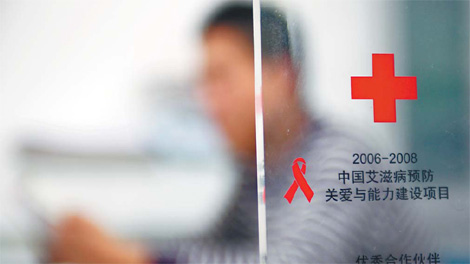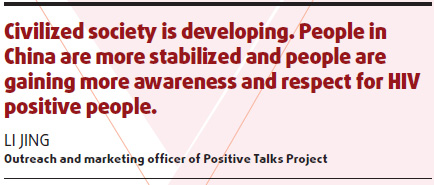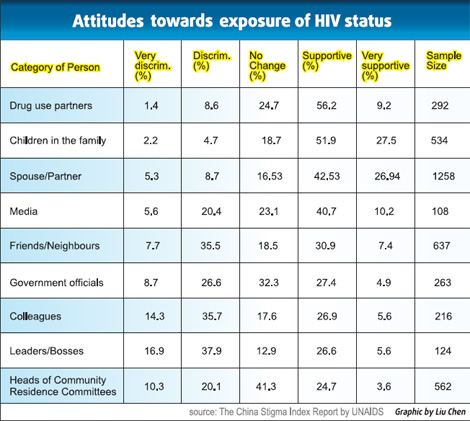Health
Shame behind closed doors
(China Daily)
Updated: 2009-12-01 11:30

When Wang, who declined to use his full name, was 16 years old he was given the grave news that his mother had contracted HIV.
At the time, Wang's parents worked as farmers in a small village of 1,000 people in Henan province, his mother helped with the farming, working alongside his father in the fields.
Wang said he remembers that during that time his mother was so strong.
In 1998, Wang's mother donated blood at an illegally operated blood donation center to help pay off debts the family had accrued after purchasing a truck to help with farm operations.
Soon Wang's mother began getting sick, running a high fever for almost an entire year before a doctor diagnosed her with HIV.
"We didn't know much about this disease and tried to find a cure for her. We went to many places and many hospitals looking for help," he said.
His parents eventually ran out of money paying for their medical bills, but the treatment his mother was receiving was not helping and she continued growing weak.
Making matters worse, the 25-year-old geology student said that his family, including his younger sister and younger brother, was slowly being pushed away by the villagers after they discovered his mother had contracted HIV/AIDS.
"On sunny days, when the weather was too hot to be in our house, people would gather in the shade on the outskirts of town to talk," he said. "When people found out my mother had HIV, if she would tried sit with them, everyone would get up and move away."
Outwardly his family remains strong, pretending that this did not bother them. But behind close doors it is a different story.
"My parents feel shame, perhaps because of the misunderstandings of others," he said pausing to consider the reasoning. "Butbut I really don't know why."
"I think it's unnecessary to feel shame by it," he said.
Discrimination against people living with HIV/AIDS is one of the largest obstacles facing those who are impacted by the disease, according to a recent report conducted by the UNAIDS, Chinese Ministry of Health and other societies.
Li Jing, outreach and marketing officer of Positive Talks Project, the organization responsible for implementing the survey, said that self-blame and self-shame is exceptionally high among women.
"For me, the most interesting find in the report was that women suffered more," she said.
The report stated that more than 50 percent of women surveyed had considered suicide, higher than the rate for men.
The report, titled the China Stigma Index, interviewed 2,096 people living with HIV across 22 provinces in China. In the report it was discovered that one of the greatest fears amongst people living with HIV is that their status is revealed without giving consent.
Of those surveyed, 78.9 percent expressed worry over being gossiped about and less than 15 percent said they had told close friends or family about their medical condition.
Wang, who has been attending university in Beijing for more than six years, reflected on those fears. He said even though he does not have HIV, he has never told anybody at his university about his situation at home for fear of similar discrimination amongst his college peers.
"I am afraid that people won't understand and I don't know how they will react," he said.
Two-thirds of those interviewed for the report also said they were ashamed of their condition and felt guilty because of it. Over 75 percent blamed themselves for contracting HIV/AIDS.
"We must de-dramatize how people view HIV," said Executive Director of UNAIDS, Michelle Siebe.
He said that education was a crucial element to not only stopping the stigma against AIDS, but also stemming the spread.
Many people refuse to get HIV/AIDS tests because they fear the results, he said.
"Why would they go for testing when they are going to be rejected from society if found positive?" he said.
The China Stigma Index echoed Siebe's concerns, finding that more than one-fifth of those surveyed did not get tested voluntarily, but instead were forced to take an HIV/AIDS test during a medical examination.
While many of the statistics from the report paint a grim picture for those living with HIV/AIDS, Li said that the attitude of both HIV positive and healthy people are headed in the right direction.
"Civilized society is developing," she said. "People in China are more stabilized and people are gaining more awareness and respect for HIV positive people."
"What we hope to do is create a more respectable, more equal, more democratic society for all humans, not just for HIV positive people, but for all people."











